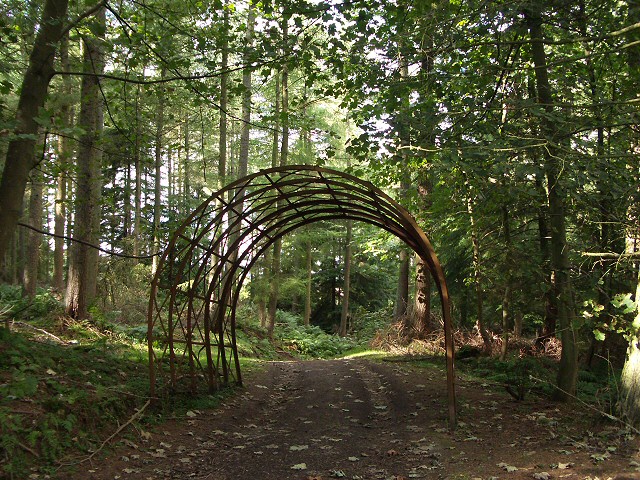Towards Sustainable Land Management in Scotland
The ways in which we perceive and manage our land influences how our environment and society function. When land is well managed, it can offer prosperity for all; when mismanaged, it can fuel inequality. Well-managed land provides ecosystem services including food and forest products, carbon emission mitigation, catchment flooding reduction, decreased pollution and biodiversity conservation.

Together with provision of recreational and cultural services for local communities and tourists, such benefits are increasingly being delivered in multifaceted approaches that could align well with the holistic approach of the UN Sustainable Development Goals (SDGs). There are 17 SDGs, which aim to tackle poverty and hunger, climate change and biodiversity loss, whilst supporting health and wellbeing, education and decent work, amongst other goals. A project led by Rehema White at the School of Geography and Sustainable Development and Beverley Searle of University of Dundee brought together Universities, Falkland Estate, the Scottish Land Commission and other stakeholders . The team ran events to enable dialogue and activities, aiming to consider how the SDGs can inspire and inform sustainable land management in Scotland, whilst critically reflecting on the SDGs themselves.
Scotland has several suites of regulatory tools in place that align with the SDGs. The third Scottish Land Use Strategy runs from 2021 to 2026, and lays out objectives relating to the environment, economy, and communities, whilst the Land Rights and Responsibilities Statement focuses on the responsibilities various groups hold over the various lands they are surrounded by. It is unclear to what extent these policies map to the SDGs and their interactivities, although the Scottish Land Commission is addressing their practical implications.
Falkland Estate is a timely example of a system in transformation, exploring integrated land use and governance change. The project aimed to use creative arts as well as academic debate and a policy brief within and beyond Falkland Estate to engage community and other stakeholder interest in the debates over land and the SDGs. Outputs included the production of a film, by young film maker Josh Davie, which can be viewed below.
An activity title TransFORMation, led by Becky Little of Rebearth, involved four other makers, producing several pieces and capturing the production process using video, discussion and journal entries. The items were included in programme webinars and an online exhibition, while a sustained social media and blog campaign brought the story to a wider audience. In addition, postcards of the items were created and 150 were distributed at a community presentation. Becky Little later ran a workshop entitled ‘Earth Art and Building’, using a similar approach to TransFORMation but on a larger scale, with 16 participants at an outdoor natural design gathering. All the making processes and artefacts have been shared widely on Instagram, Facebook and the Rebearth, Falkland Estate, and Scottish Universities Insight Institute websites.
A briefing paper prepared by the group analysed methods and tools to assess progress against the SDGs whilst considering the ways in which they interact. The paper explored how to realise the SDGs in ways that identify synergies between them and minimise the negative trade-offs that have hindered progress towards them elsewhere. The group developed a seven-step ‘Integration Cycle’ to be adopted by institutions to assist their realising the SDGs, and analysed relevance and applicability of 17 tools to incorporate and assess the interactivity of the various Goals. The tools are context specific, with applicability dependent on scale, purpose and form of organisation or initiative, location, and other factors. How might you consider the SDGs in your community, organisation or institution? This briefing paper is a great place to begin.
What has changed as a result of this project? The discussions around Falkland Estate are ongoing; Rehema spoke at the wee Big Tent HarvestFest event on Falkland Estate only in early October. The Land Commission is updating its legislation. The briefing paper has catalysed use of several tools; we have recently used the Global Ecovillage Network Map of Regeneration in our University in teaching and action contexts.
Key findings of the project included recognition of tensions around the pace of change: urgency is required but the necessary level of engagement with stakeholders takes time. The paper points to a need for policies and actions at different scales to be aligned. SDGs offer global aspirations for our globalised world, but we need relevant and complementary national and local policies. Whilst recent efforts have focused more on human rights in relation to land access in Scotland, we need to better consider the rights of nature, and recognise the responsibilities of land users, local people, and large developers. Dialogue and shared goals are crucial to implemented change in people’s behaviours, such as food choices, which facilitate sustainable land use, but structural changes, such as cycle lanes, will also be needed. Finally, art is essential to provoke, inspire and inform people, especially amongst a locality of people connected to a given place. Overall, the urgency of global challenges and their manifestation at local levels leads the group to propose that it is a ‘Just Transformation’ rather than a ‘Just Transition’ that is required.